Art & Exhibitions
Drawings Newly Attributed to Sandro Botticelli Get the Spotlight in San Francisco
"Botticelli: Rhythm of the Line" is the first exhibition dedicated to the Renaissance master's drawings.
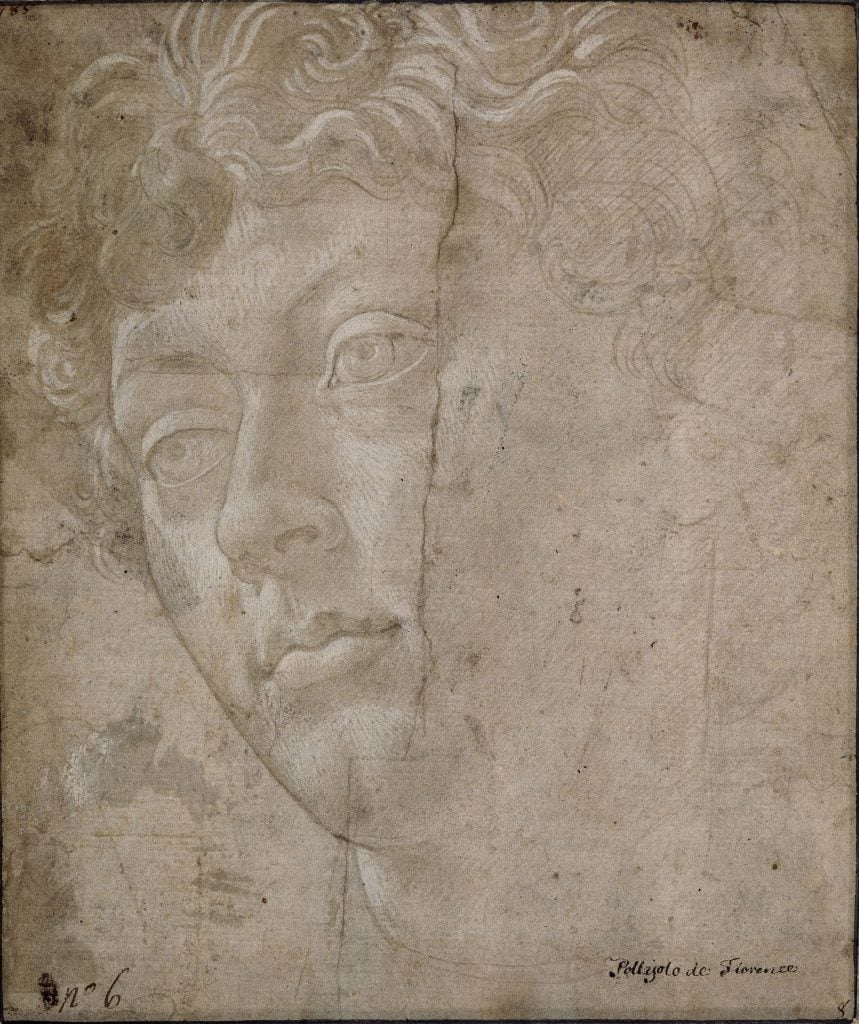
"Botticelli: Rhythm of the Line" is the first exhibition dedicated to the Renaissance master's drawings.

Verity Babbs

The great Renaissance artist Sandro Botticelli is best known for painted works such as Primavera (c. 1477–82) and The Birth of Venus (c. 1485–86), which hang in Florence’s Uffizi Gallery, but a new show at San Francisco’s Legion of Honor, one of the Fine Arts Museums of San Francisco, celebrates the artist’s drawings. “Botticelli: Rhythm of the Line” is the first-ever exhibition dedicated to his works in the medium.
The exhibition includes more than 60 artworks from 42 institutions, with 27 drawings on display. They come from institutions like the Uffizi as well as Paris’s Louvre Museum and the National Gallery in London. Many of these works rarely travel, and they temporarily turn the Bay Area into a remarkable showcase for the Renaissance master’s output.
Botticelli—born Alessandro Filipepi in 1445—ran his own large workshop in Florence after studying under the master Fra Filippo Lippi from around the age of 15. After his training, Botticelli developed a style which harked back to the artistic ideals of classical antiquity, and he is known for his individualized portraits. His group portraits often included real contemporary figures and self-portraits, the most famous of which can be seen in his The Adoration of the Magi (c. 1475).
In a short documentary produced by the Fine Arts Museums of San Francisco, Furio Rinaldi, the exhibition’s curator, explains the appeal of drawings as a route to a more intimate understanding of the Old Masters: “Most of these Old Masters are perceived as very remote and unapproachable, but through their drawings we can have a much more direct and fresh understanding on how they were thinking, how they were designing, how they were articulating their memorable compositions.”
The exhibition examines the role preparatory drawing played in Botticelli’s practice, and pairs completed works with the initial drawings for them. His world-renowned Adoration of the Magi hangs alongside fragments of preparatory drawings on linen.
The exhibition also features works recently attributed to the Italian Renaissance master. These include preparatory drawings for The Cestello Annunciation (1489), from the Uffizi Gallery; Adoration of the Magi from the National Gallery of Art, Washington, D.C.; and Virgin and Child with the Young Saint John the Baptist (c. 1468–70), from the Louvre Museum. The Virgin and Child with the Young Saint John the Baptist is hung next to the newly attributed drawing.
Rinaldi has said that the new attributions “will help lay the groundwork for a fuller understanding of Botticelli’s artistic output and the field of Italian Renaissance art at large.”
“Botticelli: Rhythm of the Line” is on view at the Legion of Honor, 100 34th Avenue, San Francisco, through February 11, 2024. See more works from the show below.
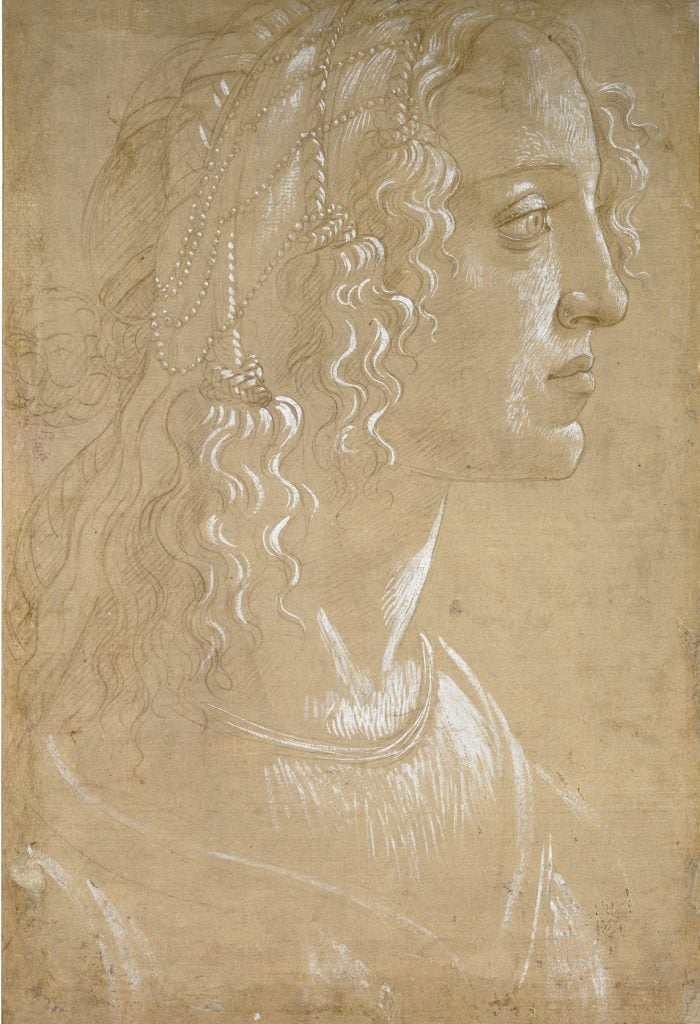
Sandro Botticelli, La Bella Simonetta (ca. 1485). Photo courtesy of Ashmolean Museum.
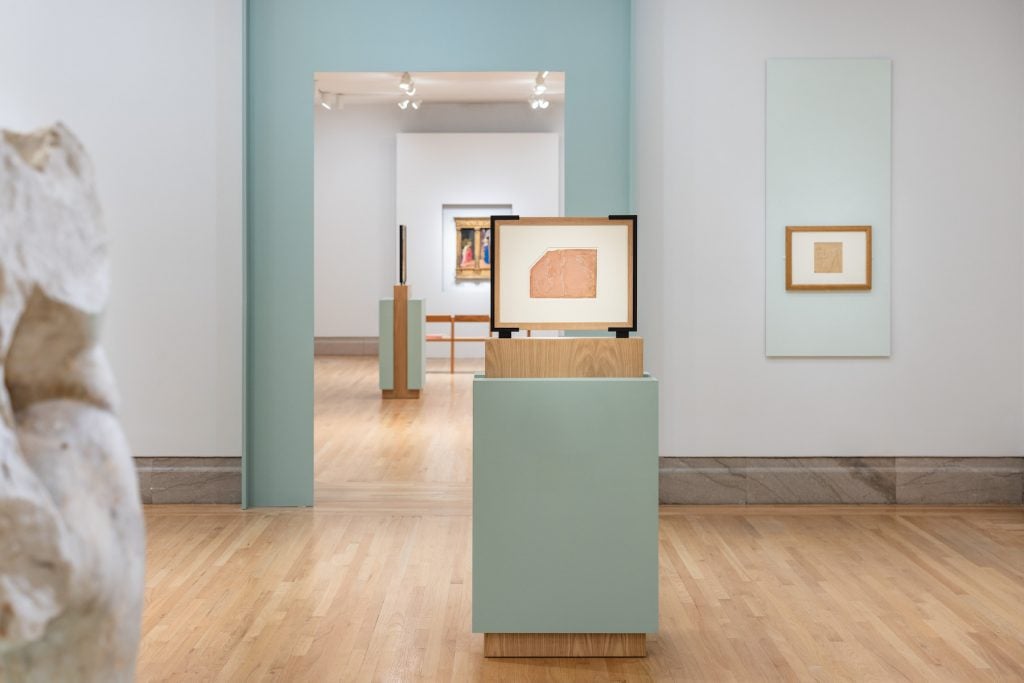
Installation view of “Botticelli: Rhythm of the Line” at Legion of Honor, San Francisco. Photo by Gary Sexton, courtesy of the Fine Arts Museums of San Francisco.
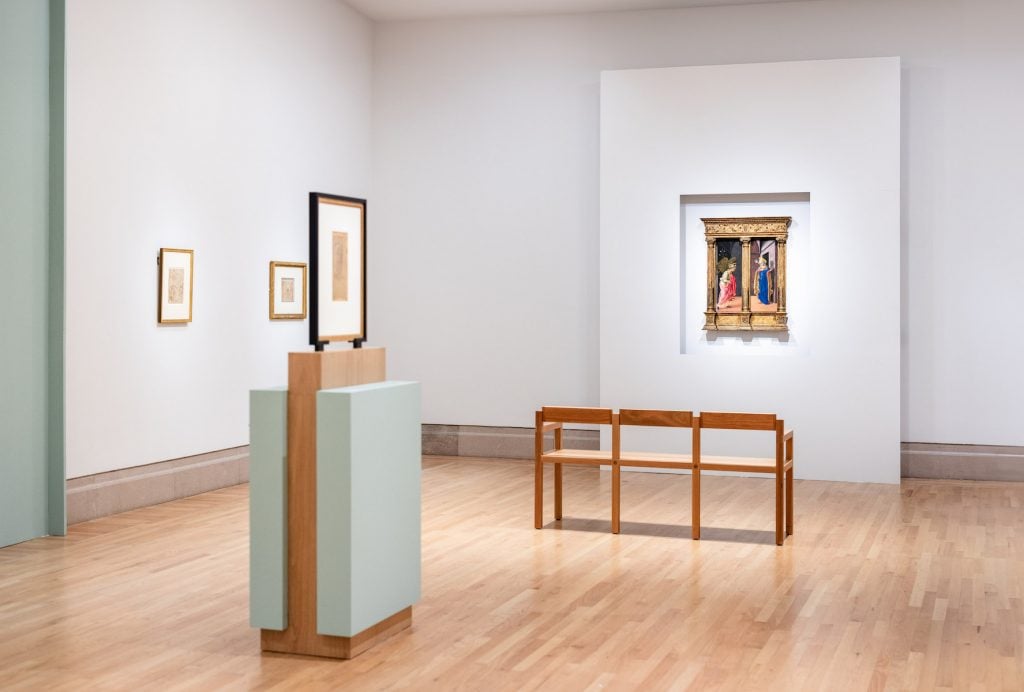
Installation view of “Botticelli: Rhythm of the Line” at Legion of Honor, San Francisco. Photo by Gary Sexton, courtesy of the Fine Arts Museums of San Francisco.
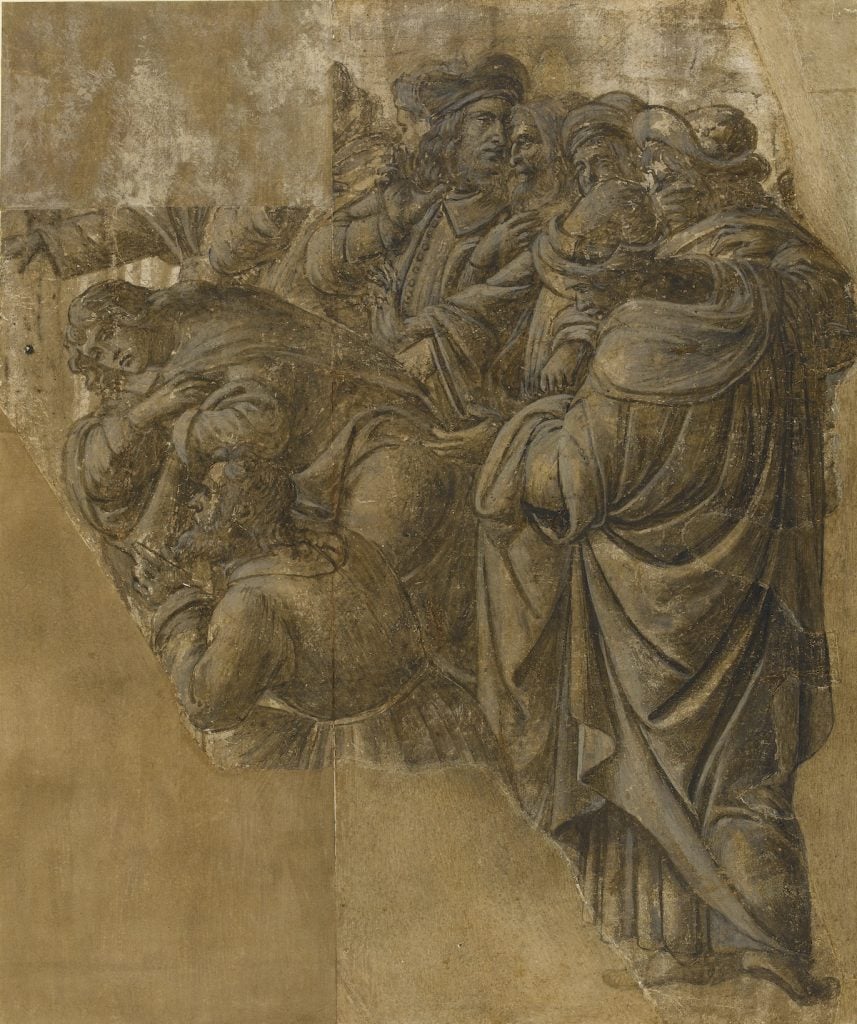
Sandro Botticelli, Fragment of Adoration of the Magi (ca. 1500). Photo courtesy of Fitzwilliam Museum, Cambridge / Art Resource, NY.
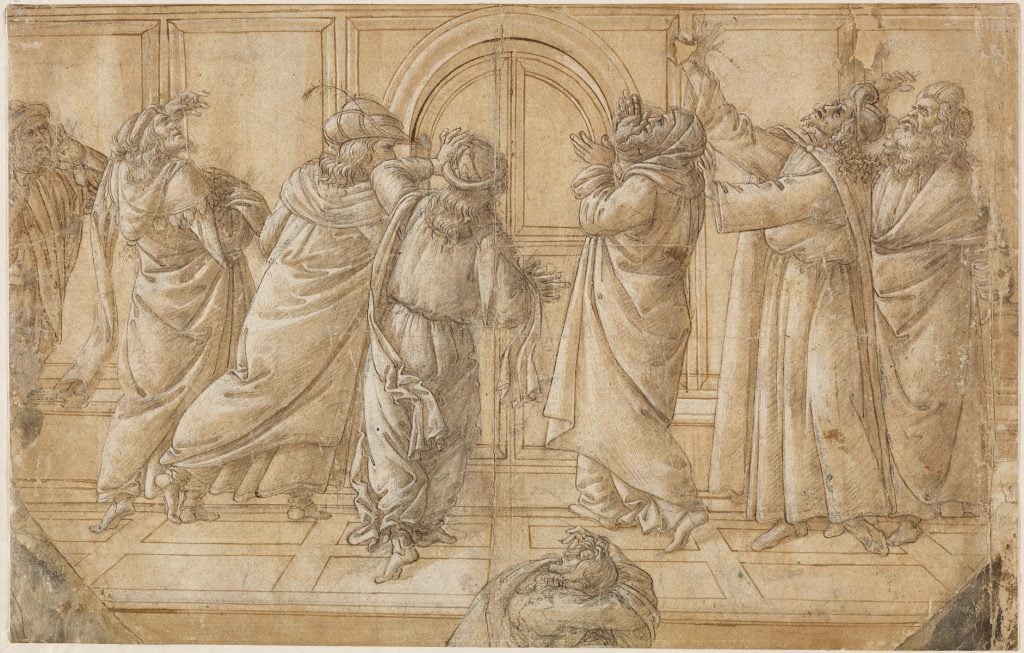
Sandro Botticelli, The Devout People of Jerusalem at the Pentecost (ca. 1505). Photo by Wolfgang Fuhrmannek, courtesy of Hessisches Landesmuseum Darmstadt.
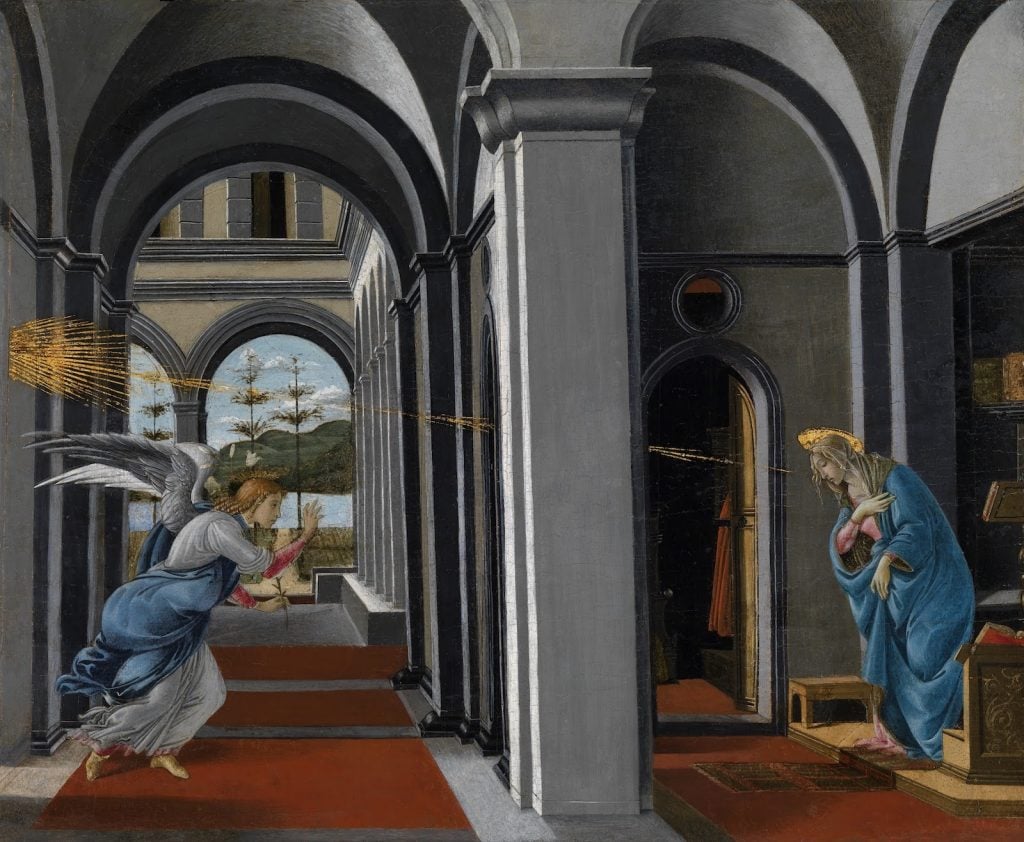
Sandro Botticelli, The Annunciation (ca. 1490–95). Courtesy Glasgow Museums.
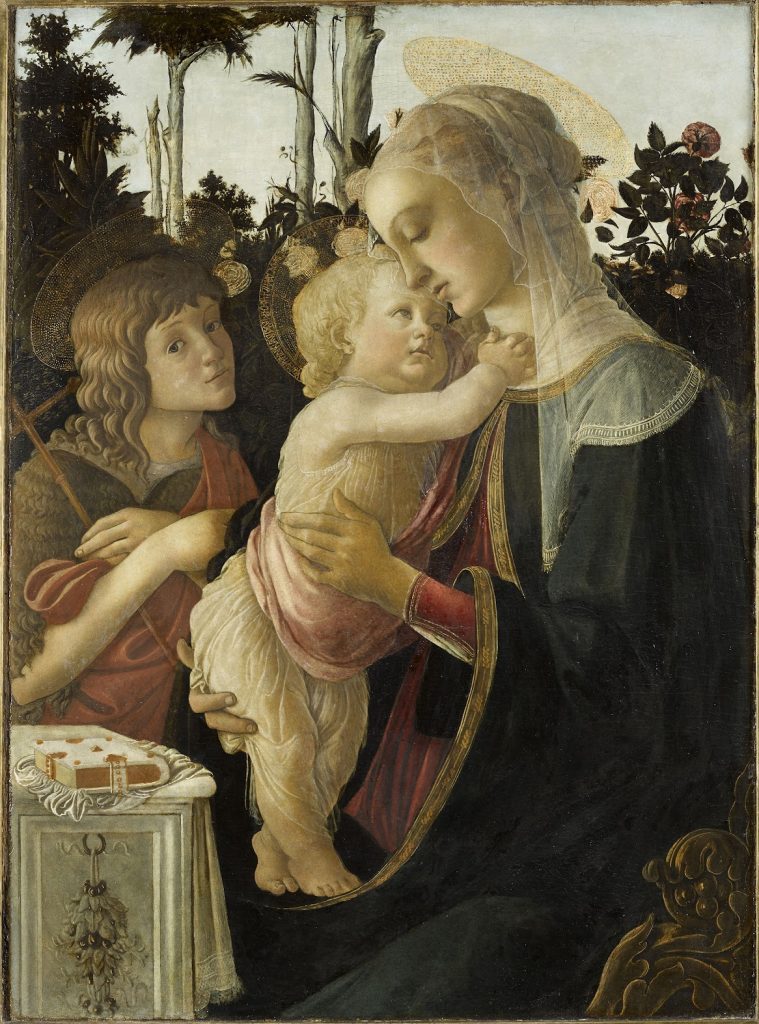
Sandro Botticelli, The Virgin and Child with the Young Saint John the Baptist (Madonna of the Rose Garden) (ca. 1468). © RMN-Grand Palais. Photo Tony Querrec.
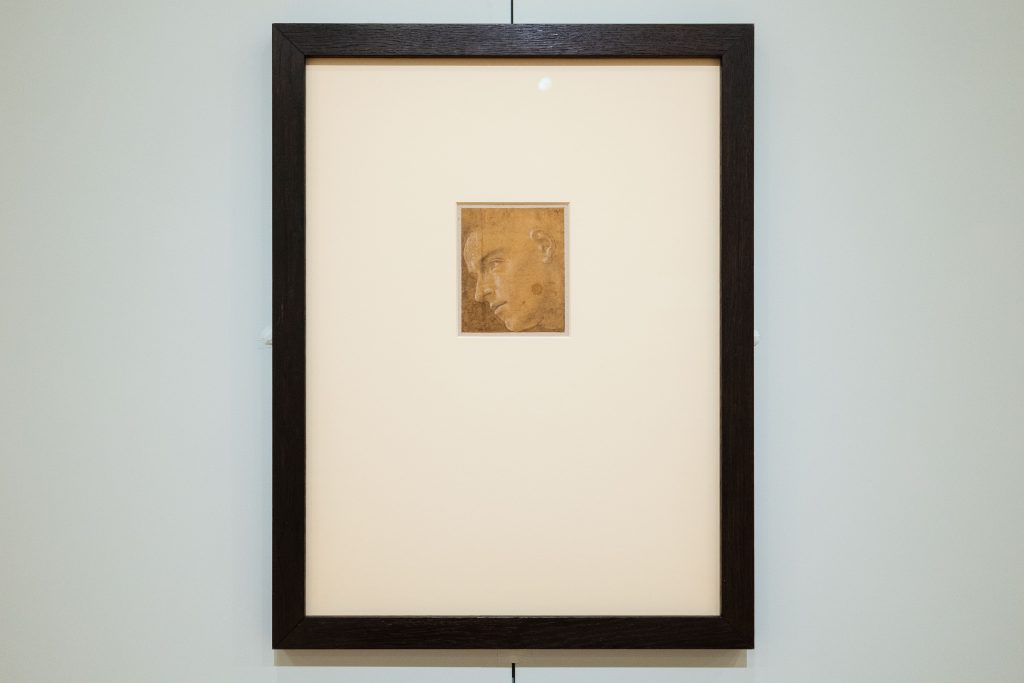
Installation view of “Botticelli: Rhythm of the Line” at Legion of Honor, San Francisco. Photo by Drew Altizer, courtesy of the Fine Arts Museums of San Francisco.
More Trending Stories:
Inspector Schachter Uncovers Allegations Regarding the Latest Art World Scandal—And It’s a Doozy
Archaeologists Call Foul on the Purported Discovery of a 27,000-Year-Old Pyramid
A Polish Grandma Found a Rare Prehistoric Artifact—And Kept It Quiet for 50 Years
Art Critic Jerry Saltz Gets Into an Online Skirmish With A.I. Superstar Refik Anadol
Your Go-To Guide to All the Fairs You Can’t Miss During Miami Art Week 2023
The Old Masters of Comedy: See the Hidden Jokes in 5 Dutch Artworks
David Hockney Lights Up London’s Battersea Power Station With Animated Christmas Trees